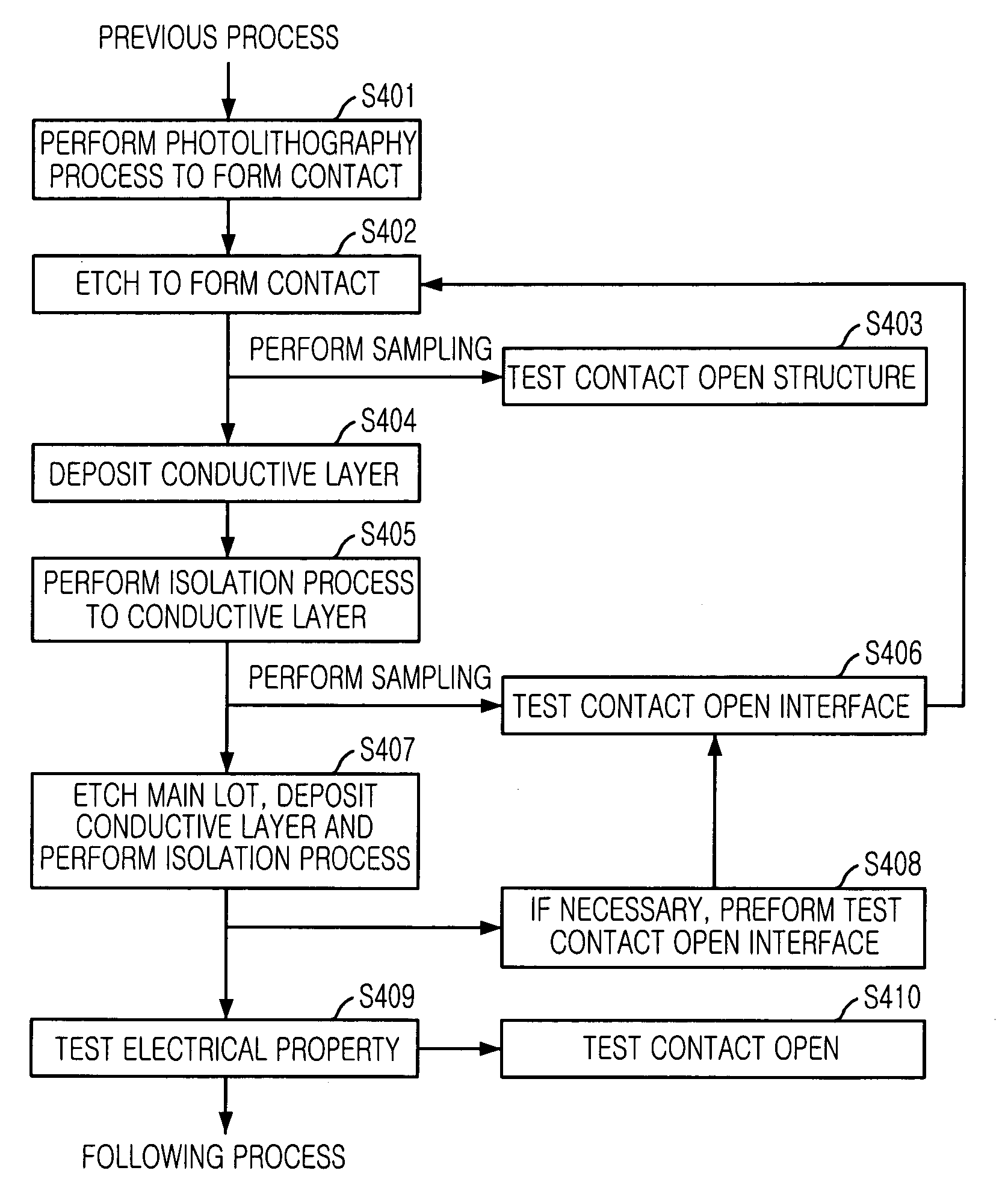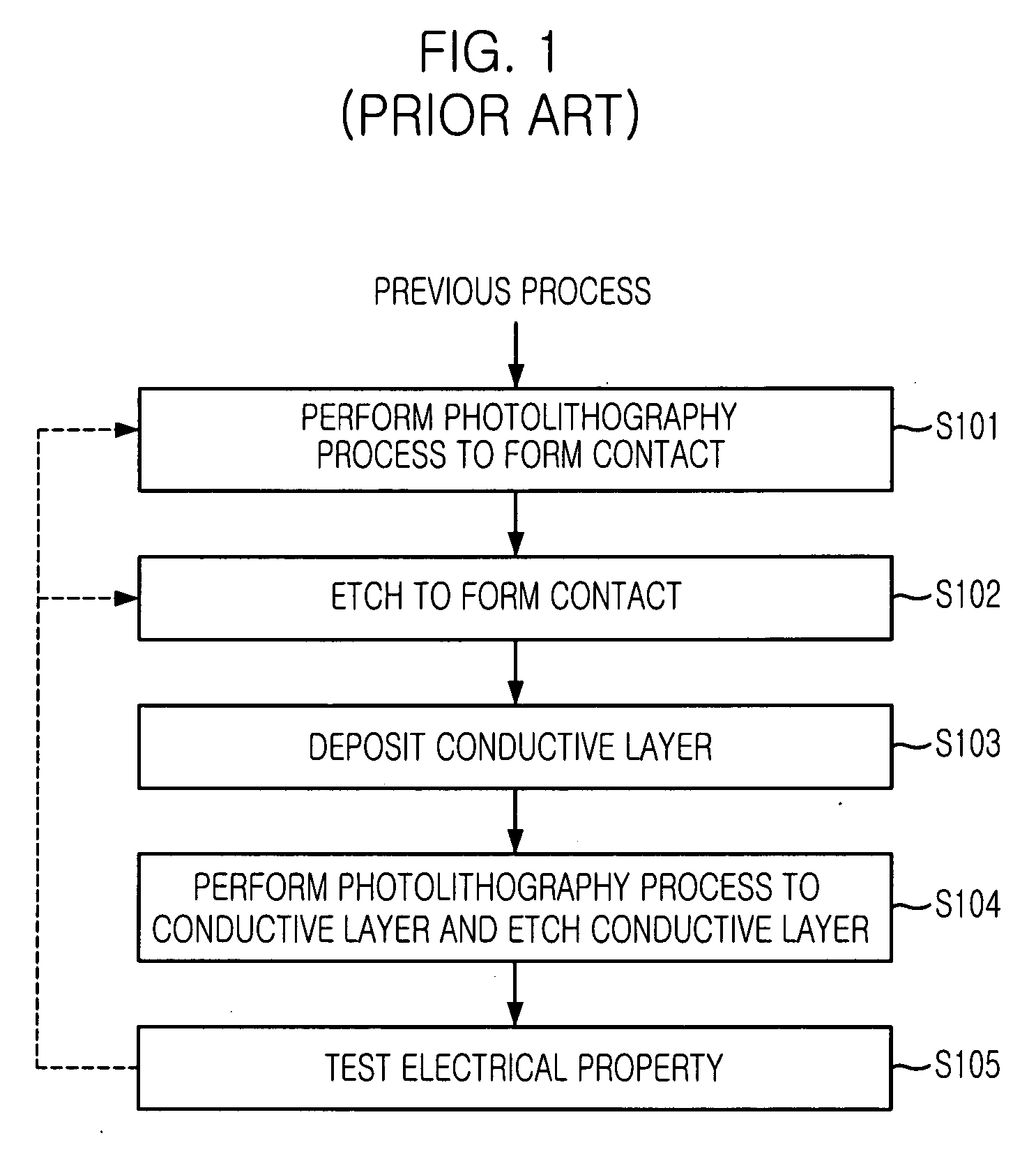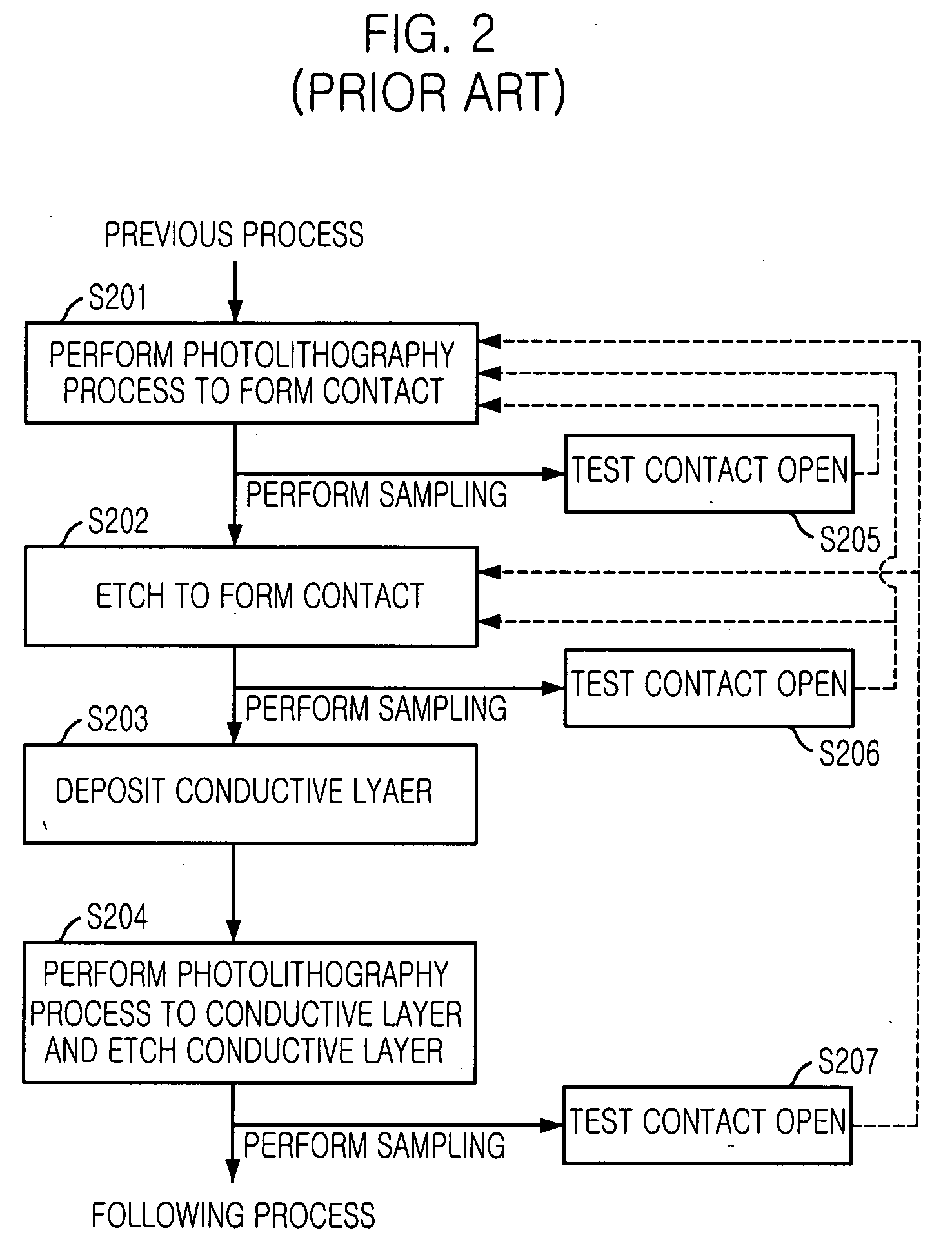Method for testing contact open in semiconductor device
a technology for semiconductor devices and contact open, which is applied in the testing/measurement of individual semiconductor devices, semiconductor/solid-state devices, instruments, etc., can solve the problems of increasing process inefficiency, generating contact defects, and reducing the efficiency of process yields, so as to achieve effective testing of contact open defects and secure mass productivity
- Summary
- Abstract
- Description
- Claims
- Application Information
AI Technical Summary
Benefits of technology
Problems solved by technology
Method used
Image
Examples
Embodiment Construction
[0035] Hereinafter, detailed descriptions on a preferred embodiment of the present invention will be provided with reference to the accompanying drawings.
[0036]FIG. 4 a flow chart illustrating a contact open process and a process for testing a contact open in accordance with the present invention.
[0037] First, a previous process for forming various device elements such as a well, a device isolation layer or a transistor on a wafer is performed.
[0038] Subsequently, a photolithography process for forming an opening such as a contact hole in a predetermined portion of the wafer is performed at step S401.
[0039] Specifically, an insulation layer is formed on a substrate or a conductive layer and then, a photoresist is deposited on the insulation layer. Afterwards, a photoresist pattern is formed by using a photo-exposure process and a developing process.
[0040] Next, an etching process for forming a contact is performed at step S401. That is, the insulation layer which is an etch tar...
PUM
 Login to View More
Login to View More Abstract
Description
Claims
Application Information
 Login to View More
Login to View More - R&D
- Intellectual Property
- Life Sciences
- Materials
- Tech Scout
- Unparalleled Data Quality
- Higher Quality Content
- 60% Fewer Hallucinations
Browse by: Latest US Patents, China's latest patents, Technical Efficacy Thesaurus, Application Domain, Technology Topic, Popular Technical Reports.
© 2025 PatSnap. All rights reserved.Legal|Privacy policy|Modern Slavery Act Transparency Statement|Sitemap|About US| Contact US: help@patsnap.com



